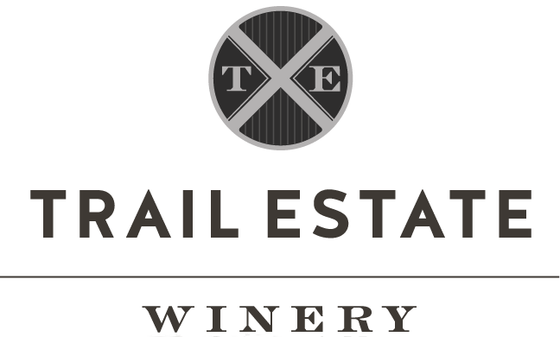By Brooke Taylor
This blog post is written by our newest team member: Brooke Taylor. Brooke is our Assistant Winemaker & Vineyard Manager. She joins us fresh out of the winemaking program at Niagara College. Having worked a harvest at Rosewood she has left the Niagara region for beautiful Prince Edward County. Despite being ‘fresh’ to the winemaking scene, Brooke is no novice to gardening. Having run her own landscaping company in Toronto, attending and teaching a Sustainable Agriculture program in the Panamanian jungle and completing a bachelor’s degree at Ryerson University (now MTU) in Environment and Urban Sustainability, she is well qualified to join our team, helping to craft healthy plants and make delicious wines.
---
Closing the Loop at Trail Estate
In order to create a closed-loop system here at Trail Estate Winery we must be focused on sustainability, permaculture practices and efficient compost systems. Sustainability means leaving the natural environment better than we found it and co-existing with nature. Permaculture is an agricultural practice that focuses on planting perennials (plants that return every year) and implementing systems that mimic natural processes. We have started to build our first permaculture garden space on the property in the Wine Forest.
The Wine Forest
The Wine Forest is home to ingredients for our Piquette with perennials planted such as: rhubarb, lavender, black currants and more. The long-term plan will involve the planting of more perennials that we can experiment with such as: raspberries, blueberries and other currant varieties.
Companion planting techniques will be implemented like planting columbines next to rhubarb and echinacea around the lavender. This planting technique promotes good soil health and pest mitigation. Irrigation will be by a system
of swales that will run and interconnect throughout the garden. Swales are trenches that, when designed properly, will move and store water near the roots of plants and mitigates water and soil run-off.
Becoming Self-Sufficient
A cornerstone of self-sufficiency is seed saving which is another process that I have started by scavenging and harvesting seeds from our wild flowers on site such as milkweed, columbine and asters. These native-to-Ontario flowers not only look great but are also beneficial pollinators and the Monarch butterfly population.

Compost
Also new are a couple compost systems in order to make our waste productive and that will ultimately be applied to our vineyard to promote soil health, water retention and weed suppression. Compost is a waste pile of leaf litter, food scraps, grass cuttings, straw and other natural materials that are rich in nitrogen and carbon. Over time the decomposition of these materials will create very healthy soil which, due to mass monoculture farming, some of our healthiest soils in the world have been depleted to the point of no regeneration. It is critical that we build new soil in order to promote biodiversity above and below the ground level.

All our grape skins and pomace from the harvest season will be an integral part of our compost pile. I have created a windrow, which is a long narrow compost pile that will result in higher decomposition rates and is a productive solution for our grape pomace. Once decomposed, it will be returned to the plants that they came from as soil, thus creating a truly closed-loop system.
